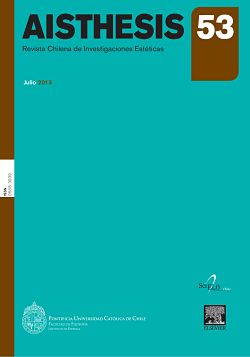Cultural Differences and Tolerance: Humanitarian Principles and Bildungsroman in Cartas marruecas and El Periquillo Sarniento
Main Article Content
Abstract
The eighteenth century bildungsroman novel reflects the sociocultural ambience and philosophical debates of those times. An important concept signaling the awareness of liberty and the formation of the individual is «tolerance», whose origin can be traced to the conflicts of religious wars. If in the bildungsroman novel learning and experience lead to the awakening of an individual’s conscience, education and pedagogic formation serve to distinguish cultural differences, as seen in two important texts in literature in Spanish: Cartas marruecas (1793) by José Cadalso, and El Periquillo Sarniento (1816) by José Fernández de Lizardi.
Downloads
Article Details

This work is licensed under a Creative Commons Attribution-NonCommercial-ShareAlike 4.0 International License.
All contents of this electronic edition are distributed under the Creative Commons license of "Attribución-shareAlike 4.0 Internacional" (CC-BY-SA). Any total or partial reproduction of the material must mention its origin.
The rights of academic works published in this publication belong to their authors., who grant to AISTHESIS: Revista Chilena de Investigaciones Estéticas the license for its use. The management of the permits and the authorization of the publication of the images (or of any material) that contains copyright and its consequent rights of reproduction in this publication is the sole responsibility of the authors of the articles
